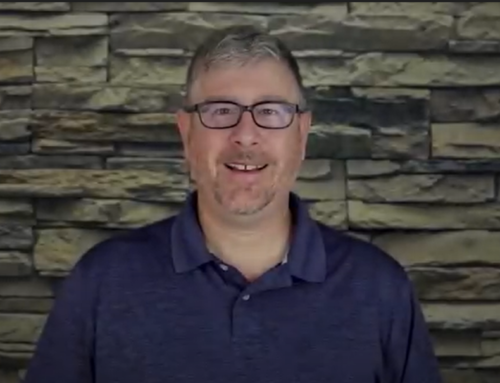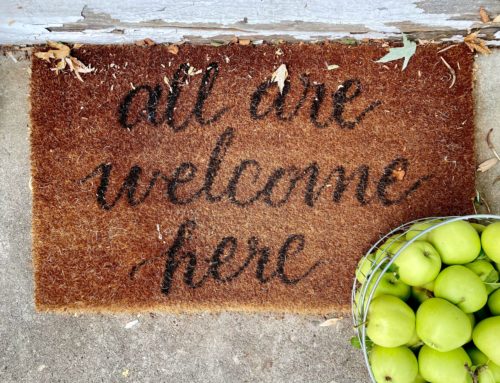 We recently had the opportunity to sit down with Traci Harrod, the founder and director of Refuge, a non-profit organization that provides workshops, training, and consultation to faith communities and other groups that want to engage with our neighbors in the US who came through refugee resettlement. She is also the trainer for The RISE Project’s “Refugee Journey” initiative.
We recently had the opportunity to sit down with Traci Harrod, the founder and director of Refuge, a non-profit organization that provides workshops, training, and consultation to faith communities and other groups that want to engage with our neighbors in the US who came through refugee resettlement. She is also the trainer for The RISE Project’s “Refugee Journey” initiative.
What is the one thing you wish you could tell Christians and church leaders about the refugee resettlement issue? Okay, perhaps one is just not possible – what are three things you wish you could tell them?
It’s important to remember that refugees are people who come here because they’ve suffered. They’re not the people we need to be afraid of, they are the victims of people we need to be afraid of. People who come through refugee resettlement are from all religions and all language groups, but I see us allowing our fear to lead us. I know people are concerned about safety. Of course, every person wants to be safe! Is it possible for someone to come through the resettlement process and do harm? Yes. Is it likely? No. Refugees are by far the most vetted people coming into our country. This process takes the longest, and it’s the most complex. So someone trying to do harm to Americans would likely not come through this channel, and it hasn’t happened yet. So when we refuse to harbor the victims of those we say are our enemies, we’re actually helping our enemies. I think it’s possible to welcome people who have been forcibly displaced due to war and trauma and also have reasonable security.
All of that said, an even higher value is that we look at what it means to reflect the heart of God. As Christ followers we need to have a higher calling than what benefits me or my political affiliation. We have to be Christian more than American. I feel like we’ve forgotten that and our first loyalty is to America. And also, we know that as Christ followers we are called to take up our crosses and follow Jesus, and we know that this is not about our rights or our comfort. The Gospel teaches us that self-preservation is not the highest calling of a Christ follower.
So I wish we’d cut through all the noise and ask what reflects the heart of Christ in terms of being inclusive and being welcoming. At the foot of the cross, all are welcome and all are equal. When we look at the people Jesus prioritized and what he taught, how do reflect that level ground in the world? I’m seeing a lack of willingness to repent of our racism and territorialism. This is more about God changing the church than it is the church changing others.
Why is it so crucial to have a “becoming us” mindset instead of an “us/them” approach?
The Bible talks about Jesus breaking down dividing walls – there’s no slave or free, Jew or Gentile. Jesus’ mission was a unifying one. We are all in need of a Savior, and our skin color, language, and nationality don’t change that. So we need to find ways to make our circles big enough that anyone would feel welcome among us. God’s message for the world is that all are welcome with God, but our attempts to be welcoming are sometimes built on a foundation of us and them and we don’t even realize it. We’ll talk about “those people,” and even if we mean well, that keeps people separated. A true welcome draws people in until they become one of us – then the welcome ends, because they’re a part of the group! That’s why I advocate for not continuing to call people refugees. That’s the life situation that caused people to flee and come here, but once they’re here they want to belong.
It’s not us who have been here for generations doing things for them. That’s usually the mindset but that’s not dignity-giving and it keeps people separate and other. Instead of thinking what can we do to help or fix “them,” let’s think about how all of us become “us.” It’s not a project, it’s relationships, and we’re all learning and all teaching.
Another thing I’ve noticed is we have lots of language about being welcoming churches, and we have greeting times during services, and people to welcome guests who walk through the doors. So apparently we know that welcoming reflects the heart of God. Why restrict that to the church building?
In addition to working through the materials provided through Refuge and The RISE Project, what are some practical next steps concerned Christians can take to be part of the solution?
This is the question I get the most, but people don’t like my answer. The practical step is to repent and let God change us, because if we go out and do a project but we haven’t allowed God to change our hearts, we’re still not going to reflect the heart of Christ. So I’m not saying we don’t do other things, but this is the first thing because otherwise we’re building a house without a foundation.
People want the shortcut—-to do a used clothing drive or a soccer camp. But if we’re doing that without the right hearts we’re still going to be condescending and perpetuating an “us and them” instead of an “us.” So this means having conversations that go deeper and talk about living out the reflection of Christ and the cross in ways that are dignity-giving. How do we rearrange our worship services so that anyone from any culture would feel they belong? How do we change the way we encounter people in our community? We begin by praying earnestly and learning voraciously, and then we can start seeking out opportunities to do more. We must realize that good intentions don’t always equal good impact.




